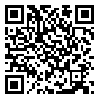Wed, Feb 11, 2026
Volume 12, Issue 1 (Winter 2022)
PTJ 2022, 12(1): 23-30 |
Back to browse issues page
Download citation:
BibTeX | RIS | EndNote | Medlars | ProCite | Reference Manager | RefWorks
Send citation to:



BibTeX | RIS | EndNote | Medlars | ProCite | Reference Manager | RefWorks
Send citation to:
Salar S, Haegele J A, Daneshmandi H. Iranian Parents’ Perceptions on Physical Activity for Their Children With Autism Spectrum Disorder During the COVID-19 Pandemic. PTJ 2022; 12 (1) :23-30
URL: http://ptj.uswr.ac.ir/article-1-511-en.html
URL: http://ptj.uswr.ac.ir/article-1-511-en.html
1- Department of Sport Injuries and Corrective Exercises, Faculty of Physical Education, University of Guiln, Rasht, Iran.
2- Department of Human Movement Sciences, Old Dominion University, Norfolk, Virginia, United States
2- Department of Human Movement Sciences, Old Dominion University, Norfolk, Virginia, United States
Abstract: (4056 Views)
Purpose: The COVID-19 pandemic is a remarkable health crisis that enforced most people to stay at home and quarantine for a period of time and seems to be having negative impacts on physical activity and mental health worldwide. Autism Spectrum Disorder (ASD), is a neurodevelopmental disorder with a deficit in social interaction characteristics, relationships, and stereotyped behaviors. This study examined Iranian parents’ perceptions of physical activity for their children with ASD during the COVID-19 pandemic.
Methods: In this study, an explanatory qualitative methodology was used and data were collected via semi-structured phone interviews. The samples included 40 Iranian parents (aged 25-50 years) who had children with ASD according to the Diagnostic and Statistical Manual of Mental Disorders-5 Edition (DSM-5) criteria (aged 7-12 years).
Results: The results showed that the parents observed their children’s physical activity to decrease greatly than before the pandemic. Parents experienced weight gain, increased anxiety, increased stereotypic behaviors, and decreased orderliness, communicative interactions, and social skills. The parents stated that, when their children were more active before the COVID-19 pandemic, they were more cheerful, more adaptable, and communicated more verbally. Parents believed that physical activities have positive effects on the development of their children’s physical health and behavior. They also reported some barriers to their children’s participation in physical activity.
Conclusion: Participating in daily physical activity and support from parents were consequential factors in the promotion of their physical and behavioral health and the development of their independent performance and quality of life during the COVID-19 pandemic.
Methods: In this study, an explanatory qualitative methodology was used and data were collected via semi-structured phone interviews. The samples included 40 Iranian parents (aged 25-50 years) who had children with ASD according to the Diagnostic and Statistical Manual of Mental Disorders-5 Edition (DSM-5) criteria (aged 7-12 years).
Results: The results showed that the parents observed their children’s physical activity to decrease greatly than before the pandemic. Parents experienced weight gain, increased anxiety, increased stereotypic behaviors, and decreased orderliness, communicative interactions, and social skills. The parents stated that, when their children were more active before the COVID-19 pandemic, they were more cheerful, more adaptable, and communicated more verbally. Parents believed that physical activities have positive effects on the development of their children’s physical health and behavior. They also reported some barriers to their children’s participation in physical activity.
Conclusion: Participating in daily physical activity and support from parents were consequential factors in the promotion of their physical and behavioral health and the development of their independent performance and quality of life during the COVID-19 pandemic.
Keywords: Autism spectrum disorder, Physical activity, COVID-19, Parents, Perception, Semi-structured interview, Quarantine
Type of Study: Research |
Subject:
General
Received: 2021/07/14 | Accepted: 2021/12/28 | Published: 2022/01/1
Received: 2021/07/14 | Accepted: 2021/12/28 | Published: 2022/01/1
Send email to the article author
| Rights and permissions | |
 |
This work is licensed under a Creative Commons Attribution-NonCommercial 4.0 International License. |






